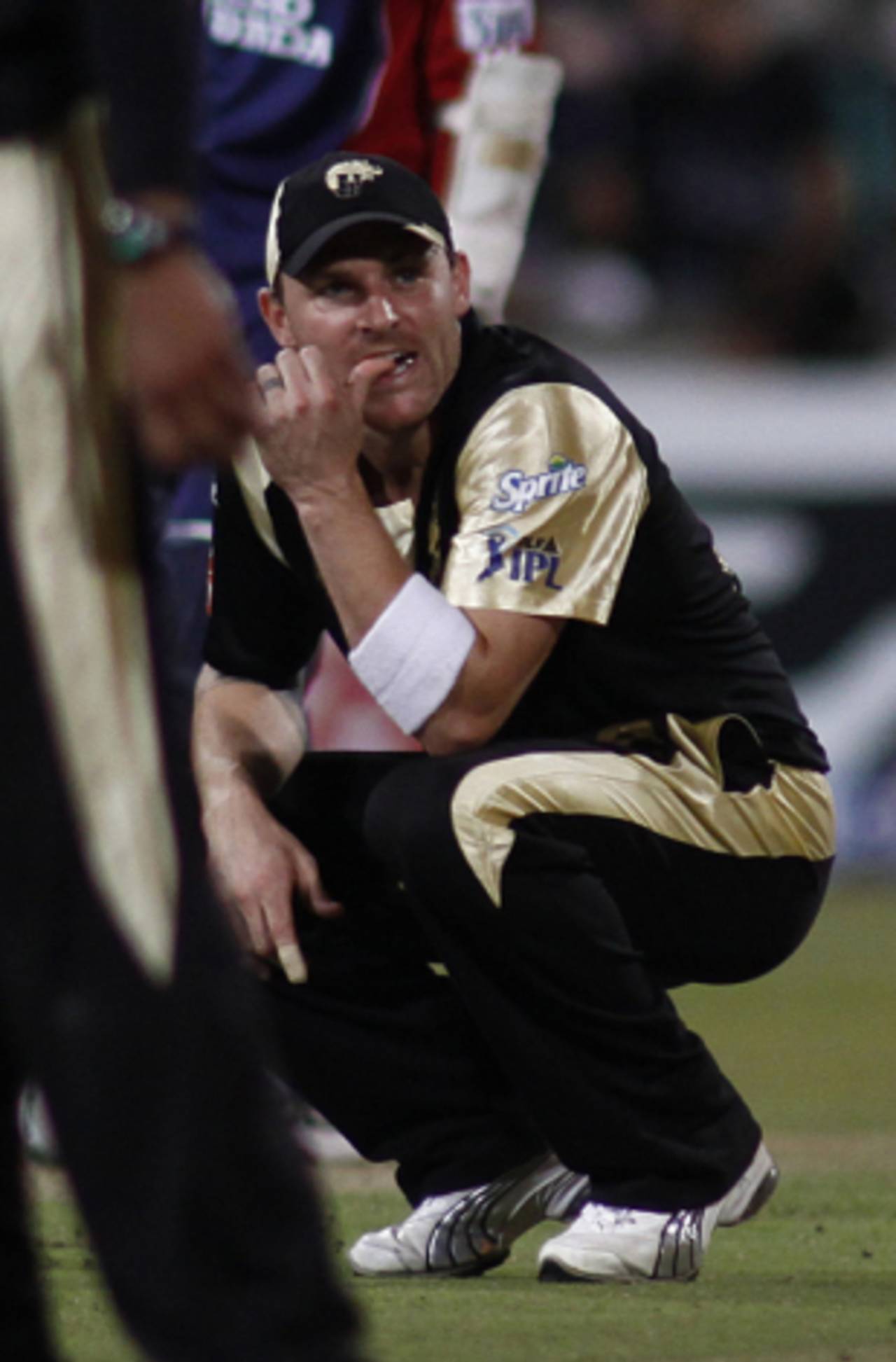McCullum by Chekhov
Why a Russian short-story writer has everything to do with the predicament Kolkata Knight Riders' captain finds himself in
Tishani Doshi
13-May-2009

McCullum's plight has gone beyond soap opera into the realm of higher art • Associated Press
I know that the Kiwi of the moment is Ross Taylor. Yesterday was his day, and there are any number of lofty adjectives I could use to describe how he snatched the match away from the Knight Riders, but I'm going to desist from using them. Not because I think he's undeserving of praise. It was beautiful to watch him bat, playing with nothing to lose, "expressing" himself, as he said, echoing his eloquent captain, Anil Kumble, and Madonna circa 1989. But there was a more poignant story playing out on the field yesterday in the form of another Kiwi, Brendon McCullum, and I think he is equally deserving of attention.
Too often while watching the IPL, I've felt drawn to the struggling side. It's human nature I guess, to feel empathy when you see another human being suffering. And when you have 11 of them put together, plus extras, the empathy multiplies. And when you see them struggling for four straight weeks, well, it's a right old tearjerker. The IPL is a format that favours flamboyance. It likes and wants "characters", and it's willing to invest in these characters as long as they're willing to perform. But when these characters fall short of performing, very much in the way that the Knight Riders have, they acquire an almost pariah status.
Observing the Knight Riders through this tournament has been a bit like being trapped in a cricket soap opera. Every day there are twists in the tale more unimaginable than anything anyone from the real world could script; there are betrayals, disappointments, long moments of wordless, smouldering eye contact; and just when you think things have got to get better, they get worse.
Yesterday appeared to be different. There was a chink of optimism; a fine sliver of hope that fortunes may be changing. McCullum dug in his heels for a captain's knock, he stole runs between wickets, he did that paddle-scoop thing, and he even deigned to smile. A teeth-showing, happy-to-be-alive smile. Not for long, of course, but still it was there. And just like that, I, as a viewer, was transported from the tawdry hell of a soap opera to the elevated realms of a Chekhov play.
Anton Chekhov lived and worked in the late 1800s in Russia, and is considered to be one of the finest short-story writers ever. Now you may wonder what a dead Russian who wrote about the human condition more than a hundred years ago has to do with McCullum, and my answer to that is: everything. Because the human condition hasn't changed much. It remains essentially tragicomic and absurd, and although we've come a long way in terms of technology and science, our fundamental human response to the randomness of life remains the same.
Chekhov experienced tragedy galore in his own life (a broken family, his brother's untimely death, failed love affairs, his own struggle with tuberculosis), so he understood struggle, and in his work as a writer, used humour and pathos to explore these realms of disillusion. His characters are usually melancholy fellows or flighty females who face inevitable losses and struggle to deal with their failed ideals in the face of life's poignant trivialities. In a Chekhov story you will find black humour, fleeting moments of happiness, and brutal randomness. Remind you of anything?
It only struck me yesterday, as I watched the match slipping away from the Knight Riders. I thought, "Oh no, they're going to lose, again. How awful, how terrible, how…." And then it arrived: Chekhovian. Because that is how it seemed to me. No longer mere spectacle or soap opera, the fate of McCullum and his tenure with the Knight Riders was moving into subtle and complex realms. Consider: this is the man who in last year's inaugural match of the IPL hit at an unbeaten 158, still the highest individual score in the tournament. He's then asked to captain arguably the most glamorous team in the IPL, and from that moment on, things go awry. Then, after weeks of wallowing in the pit of despair, there's an opportunity to salvage some shred of hope, establish some measure of self-worth, and even that is snatched away - by a fellow countryman at that!
Critics called Chekhov's endings "zero" endings, because a lot of the time they were blurry and imprecise. He favoured the anti-climax over the climax, because in his view life wasn't about meaningful revelations; it was about realising that this is just how things are. KKR's future isn't blurry at all. Everyone knows where they're heading, but for the sake of McCullum and the rest of his team, and in deference to the spirit of Chekhov (coughing his lungs out quietly somewhere in the ether-world) I hope that tide changes.
Tishani Doshi is a writer and dancer based in Chennai